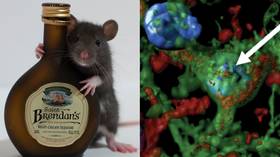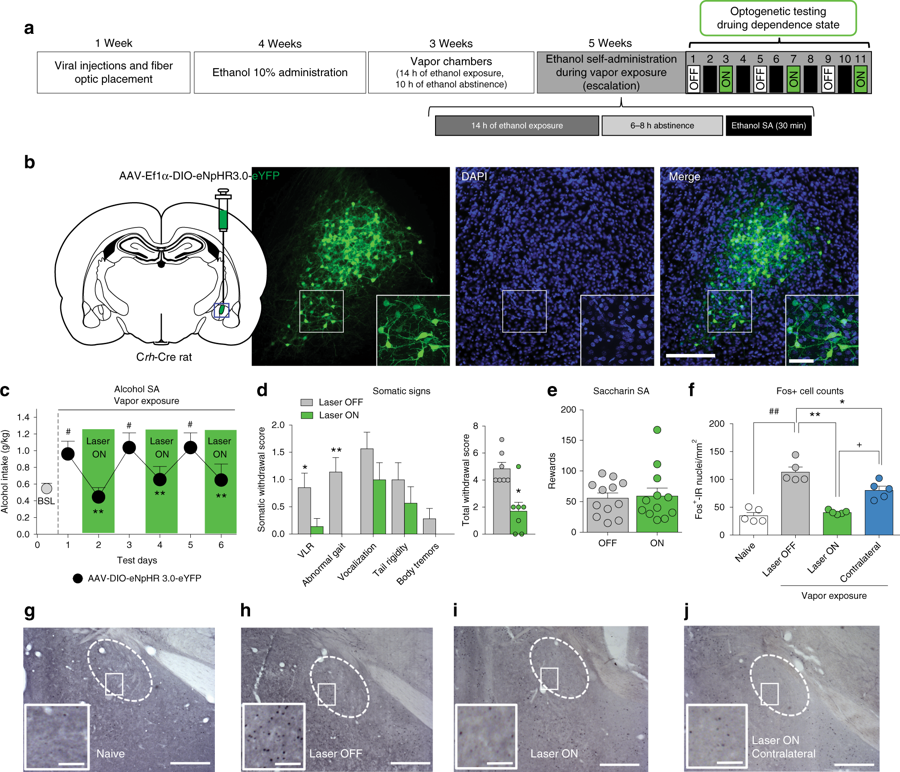'Flip of a switch’: Scientists 'cure' alcoholism in rats by firing lasers at their brains

Rats have been cured of alcoholism by having laser beams blasted at their brains, ending their dependency with a “flip of a switch,” exciting new research has revealed.
Scientists from Scripps Research fired lasers at specific neurons in the alcohol-addicted rat brains, which rid the rats of the desire to drink, as well as reducing the physical symptoms associated with alcohol withdrawal.
As soon as the lasers were turned off, however, the addiction symptoms would return.

The researchers identified a “specific neuronal population in a deep region of the brain that is activated during alcohol withdrawal and which controls alcohol drinking in a rodent model of alcoholism,” Olivier George, an associate professor at Scripps Research, told Digital Trends.
They also identified the pathways these corticotropin-releasing factor (CRF) neurons use to control other parts of the brain, which produces the addiction behaviors.
Also on rt.com Scientists pinpoint part of brain that inhibits fear, hope for PTSD breakthroughThe team then used optogenetics, which use light to control cells, to manipulate the neurons. Fibre optics were implanted deep in the brain before they were used to shine light on the CRF neurons to inhibit them.
While the idea of blasting brains with lasers to change their function could have alarming consequences for mind control in the future, scientists have said it could take decades before the method could be tested on humans, and up to 30 years before alcoholics could be fitted with brain implants.
The research was published in the journal Nature Communications.
Like this story? Share it with a friend!














